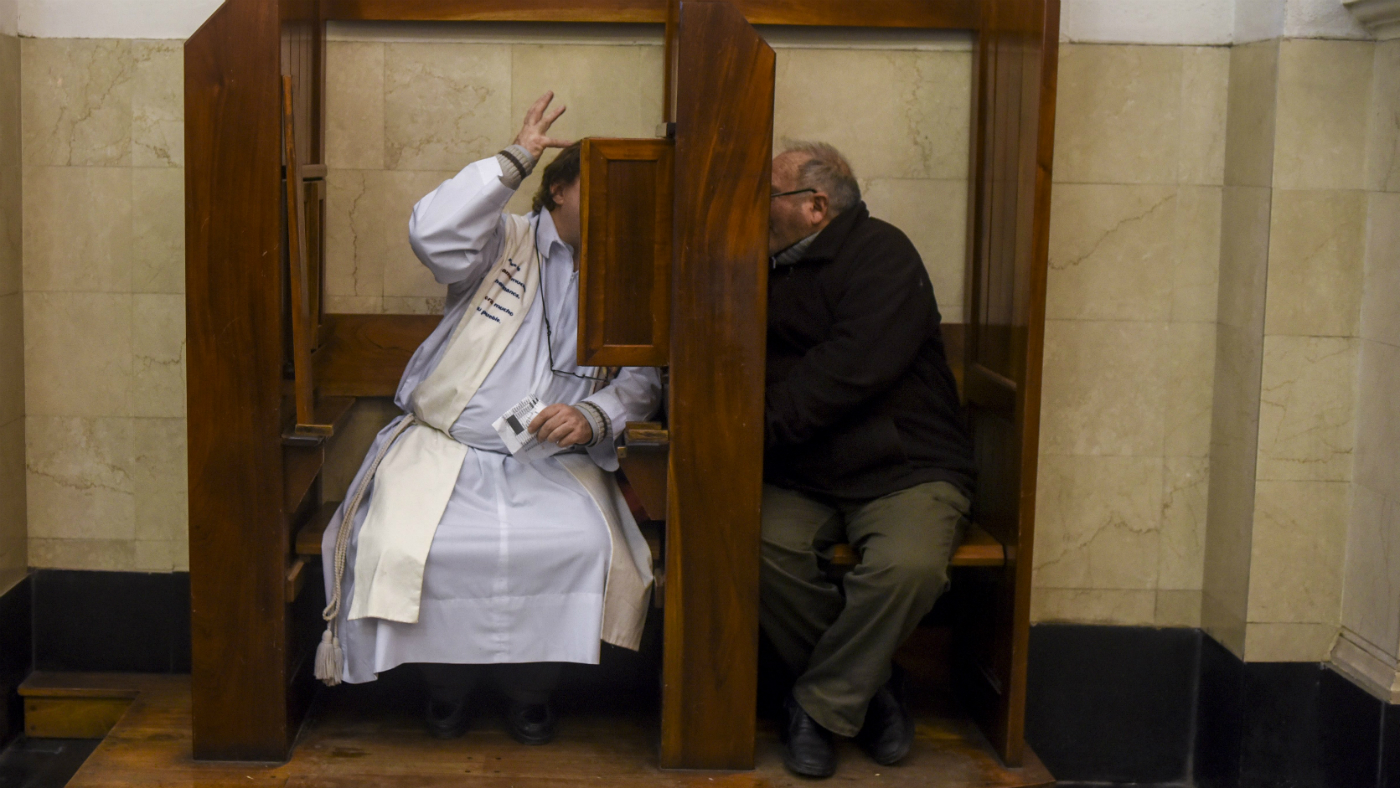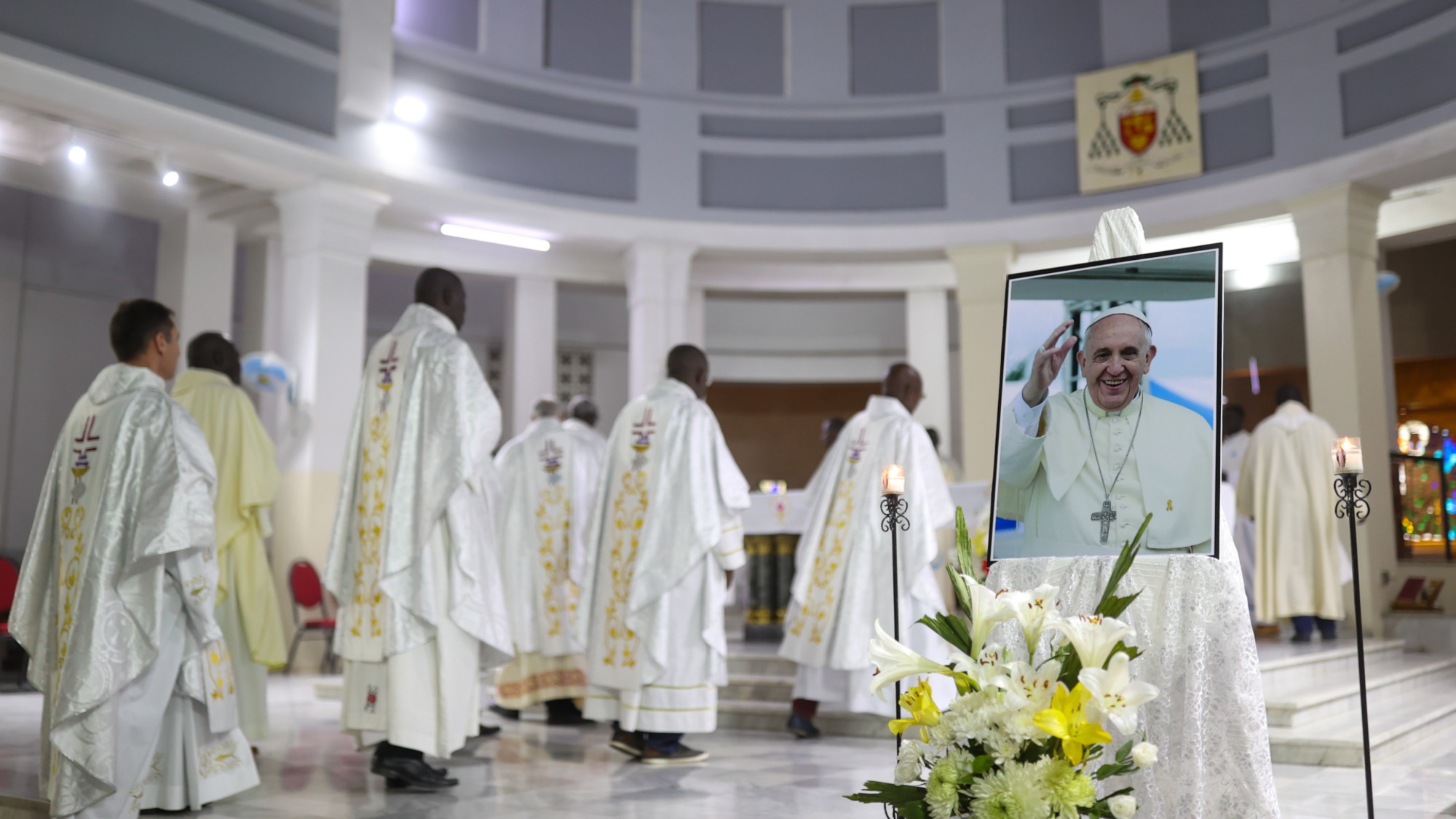When can a priest reveal a confession?
Catholic Church forbids breaking seal of secrecy but there may be ways to bypass decree

A free daily email with the biggest news stories of the day – and the best features from TheWeek.com
You are now subscribed
Your newsletter sign-up was successful
The Australian Catholic Church is under fire after rejecting a government push to force priests to report accusations of child sexual abuse heard during confession.
The Church said that “children would be less safe if mandatory reporting of confessions was required”. Lifting the ban on breaking the confessional seal would be “contrary to our faith and inimical to religious liberty”, the Australian Catholic Bishops Conference (ACBC) and Catholic Religious Australia (CRA) added in a statement.
That response has been blasted as “not good enough” by Leonie Sheedy, co-founder of the Care Leavers Australasia Network support network.There have also been allegations that the Catholic Church may be protecting criminals in its ranks.
The Week
Escape your echo chamber. Get the facts behind the news, plus analysis from multiple perspectives.

Sign up for The Week's Free Newsletters
From our morning news briefing to a weekly Good News Newsletter, get the best of The Week delivered directly to your inbox.
From our morning news briefing to a weekly Good News Newsletter, get the best of The Week delivered directly to your inbox.
The row is the latest development in a long-running debate over whether priests should be able to reveal the details of a confession in certain circumstances.
What does the Church say?
To the Catholic Church, the answer is clear: the Seal of the Confessional must never be broken under any circumstances, even in cases of grave criminality.
In the Code of Canon Law laid out by the Vatican Church, Canon 983.1 states: “The sacramental seal is inviolable; therefore it is absolutely forbidden for a confessor to betray in any way a penitent in words or in any manner and for any reason.”
A free daily email with the biggest news stories of the day – and the best features from TheWeek.com
This English translation is particularly mild, according to information site Canon Law Made Easy (CLME), which explains that the original Latin describes breaking the confessional seal as “nefas” - a word with no direct translation in English but which the site says “refers to something that is so wickedly sinful, so abominably execrable, that it is simply impossible to do it”.
Under Canon Law, the punishment for breaking the seal is excommunication from the Church entirely.
Are there exceptions to the rule?
It depends on who you ask.
To some Catholics - even moderate ones - the seal is absolute and no attempts must ever be made to break it, no matter how serious the matters learned in confession or how much pressure is put on them by lawmakers, the Catholic News Agency reports.
However, others believe there should be leeway.
The CLME website says that “if a penitent has indicated that he fully intends to kill or harm ‘Person X’, a priest may be able to warn the police that Person X is in danger, but without fully explaining how he obtained this information”.
However, “a confessor is forbidden to go to the police with specific information about a penitent which he has learned during a confession”, the site adds.
-
 Local elections 2026: where are they and who is expected to win?
Local elections 2026: where are they and who is expected to win?The Explainer Labour is braced for heavy losses and U-turn on postponing some council elections hasn’t helped the party’s prospects
-
 6 of the world’s most accessible destinations
6 of the world’s most accessible destinationsThe Week Recommends Experience all of Berlin, Singapore and Sydney
-
 How the FCC’s ‘equal time’ rule works
How the FCC’s ‘equal time’ rule worksIn the Spotlight The law is at the heart of the Colbert-CBS conflict
-
 Is the Catholic Church taking on Trump?
Is the Catholic Church taking on Trump?Today's Big Question Pope calls for ‘deep reflection’ on immigration
-
 Pope Leo wants to change the Vatican’s murky finances
Pope Leo wants to change the Vatican’s murky financesThe Explainer Leo has been working to change some decisions made by his predecessor
-
 Pope Leo canonizes first millennial saint
Pope Leo canonizes first millennial saintSpeed Read Two young Italians, Carlo Acutis and Pier Giorgio Frassati, were elevated to sainthood
-
 Where the new Pope Leo XIV stands on social issues
Where the new Pope Leo XIV stands on social issuesThe Explainer The first American pontiff is expected to continue some of his predecessor's work
-
 Prevost elected first US pope, becomes Leo XIV
Prevost elected first US pope, becomes Leo XIVspeed read Cardinal Robert Francis Prevost is a Chicago native who spent decades living in Peru
-
 Leo XIV vs. Trump: what will first American Pope mean for US Catholics?
Leo XIV vs. Trump: what will first American Pope mean for US Catholics?Today's Big Question New pope has frequently criticised the president, especially on immigration policy, but is more socially conservative than his predecessor
-
 Could the next pope be an American?
Could the next pope be an American?Today's Big Question Cardinal Robert Francis Prevost is a possible 'superpower pope'
-
 What would an African pope mean for the continent?
What would an African pope mean for the continent?Today's Big Question The Catholic Church has never had a pope from Africa in its modern history